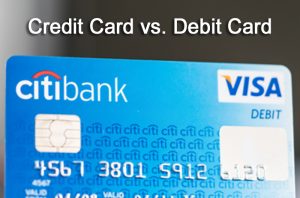What is there to hate about banks when they treat you like VIP all the time, right? Ahem.
You walk into their facilities and you get the biggest smiles from each and every bank employee. You call their customer support and you are greeted with the warmest smiling voices on the planet.
They offer you their credit card and you just feel so honored that they accepted your application.
What an experience! Wow!
Ahem.
[Long pause]
Well, they really treat you well cause … they want and need your money.
And regarding that credit card you have, you need to understand that there are certain things that your bank does not want you to know.
5. If you miss paying your bill for 2 consecutive months, be aware of your penalty.
Usually, if you are late with your payment on a billing cycle, you will be charged usually around $35 to $45 depending on the bank.
That is ridiculously outrageous, right?
What if you are 60 days late? Did you know that things can get really bad?
Some banks will raise your interest rate on your existing balance and on new charges.
Guess what the rate could be?
It could be the maximum rate allowed by local state laws some of which can be 25% or above.
That is usury at its finest.
Super Ouch!
4. There is no such thing as a fixed-rate card.
The fixed-rate on a card when you joined is usually only for a specified grace period. After that, banks may increase (or decrease) your rate … but most of the time increase it.
You will know when your rate has been changed by checking your monthly statement.
Usually, you will also be informed via snail mail.
The snail mail will be a letter that looks super booooorrrring …
… so you pretty much ignore it and don’t read it.
It will mention your rate change somewhere so be aware.
3. Beware of the shortening grace period.
It used to be that banks had grace periods of 30 days, which means you won’t get charged interest for 30 days.
However, these days, bank floats are getting shorter. Floats for bank cards are shrinking to 25 days or less.
So to avoid paying interest on shorter floats, make sure to pay your credit card bills on time or even a week before the due date.
2. Late payments can be waived.
Late payment fees are not fixed in stone, provided you do not do this very often.
On instances wherein you, for some bone-headed reason, forgot to pay your card on time or missed the bill in the mail, go ahead and try this …
… Call your credit card issuer and ask them nicely if they can waive the late payment.
Be really nice, polite, and tell them you’ve been a good customer.
Then ask to have your late fee waived.
You might end up lucky.
1. From annual fee to no-fee card … yes, it’s possible.
If you have a card that has an annual fee and you have been a really good customer, paying your bills on time, and have been with the bank issuer for a good number of years, try this.
Give them a call and ask if you can convert your card to one without any fees.
Sometimes they’ll say it’s not possible.
However, chances are they might oblige.
You just have to try and ask.
Try it. It’s worth a shot.









